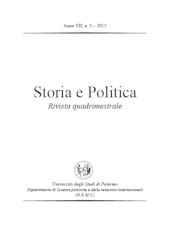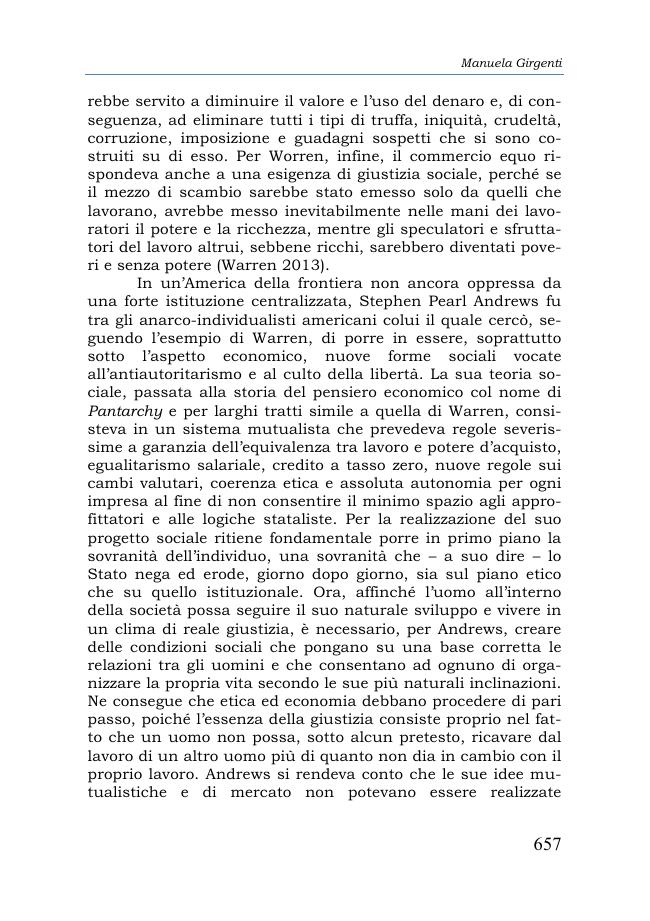Le radici culturali del movimento anarco-capitalista
638-675 p.
The Libertarian Movement, better known as anarcho-capitalism, was created in America between 1971 and 72. In its political agenda it asserts the complete extinction of the state and the greatest application in free market relationships. Within this radical vision, they mean to privatize and put on free management even justice, healthcare, security and public order and all those areas the classical liberals considered to be a prerogative of the state, entrusting them to private administrations, possibly in competition one another. American anarchism never became subversive or violent. Committed upholders of the sovereignty of the individual, they entrust the realization of their program to the growth of individual conscience towards higher social life shapes. At worst their protest considers boycott or civil disobedience. For this last, anarchism represents the most sincere show of true liberal aspects of liberal tradition in the United States.
So, the Far West period becomes a reference model, since it is one of the most successful stateless societies. Lastly, it is important to remind that the intensity of anarchist challenge has always been present in American culture, a culture particularly well suitable to the cult of freedom since the first settlers started colonizing the American land. [Publisher's text].
-
Articoli dello stesso fascicolo (disponibili singolarmente)
-
Informazioni
ISSN: 2037-0520
PAROLE CHIAVE
- Anarcho,Capitalism, Individualism, Spooner, Far West, Rand, Thoreau



